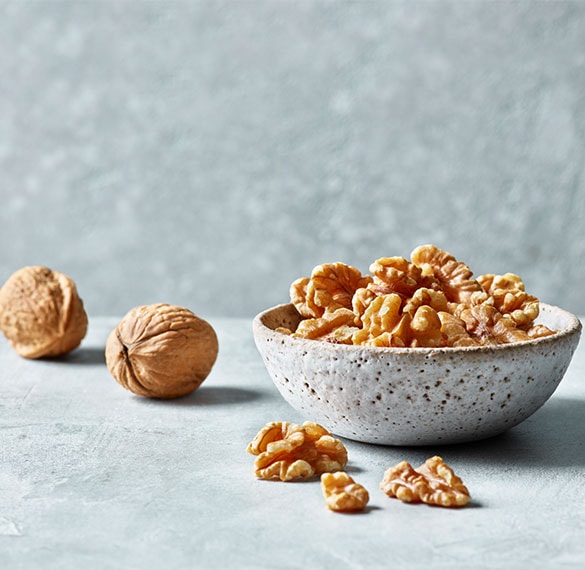Larger and longer-term studies are needed to clarify these effects in a broader population, and future research is needed to understand how specific bacterial species may be associated with favorable health effects, such as heart health.
Evidence from two animal studies also suggest an association between walnut consumption and a healthier gut.
A study published in The Journal of Nutritional Biochemisty found that walnut consumption may be beneficial for digestive health by increasing the amount of probiotic-type bacteria in the gut.3 In this study, rats were randomly assigned to a diet containing ground walnuts, equivalent to about two ounces per day in humans, or a diet without walnuts for up to 10 weeks. Calorie and nutrient intake was similar between the two groups. Compared to those that did not consume walnuts, rats that ate a walnut-enriched diet saw an increase in beneficial bacteria including, Lactobacillus, Roseburia, and Ruminococcaceae.
Another animal study published in Cancer Prevention Research found that eating walnuts may modify gut bacteria in mice to support colon health, which is considered when looking at the ability to protect against colon tumors.4 Researchers incorporated walnuts into two different diets: a standard mouse diet which is widely used in animal studies, and a Western diet representing typical American intake. Male mice fed the Western diet with 10.5 percent of total calories from walnuts, translating to just over one ounce of walnuts in a human diet, showed a significant reduction in the number and size of tumors. There was also a modest reduction in the number and volume of tumors in mice that consumed the standard diet with 15 percent of total calories from walnuts.
These animal studies provide background that can be used to inform future studies needed to understand the effect on humans. Researchers studied mice that had colon cancer, which may have altered the normal function of the gut microbiome.


